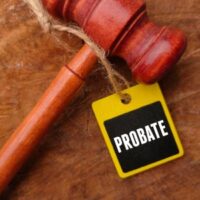Do I Have To Pay The Mortgage On A Home Inherited In Probate?

The circumstances surrounding probate are usually somber. If you are a beneficiary of an estate you were likely close to the person who passed away, and you potentially have to deal with several end-of-life matters, not to mention the emotional toll. One of the only positive things for a beneficiary who becomes involved in the entire probate process is that they may come into possession of something important to them – such as a childhood home. But some are surprised to hear that they may need to pay the mortgage on that home. Why is this?
General Rule, and the Exception
When someone dies owning a property, such as a family home, that is held solely in the decedent’s name, the property must go through the probate process before it may be distributed to the beneficiaries for their inheritance.
Generally, money from the estate is used to pay off the deceased’s creditors and outstanding debts. However, an exception exists with mortgages on property. While a mortgage loan is most certainly a “debt,” unless the last will and testament specifically directs that the monies from the estate pay off the mortgage debt, then the estate does not act to satisfy the mortgage debt.
This means that when you inherit a house that still has a mortgage attached to it in Florida, a mortgage lien will be attached to the mortgaged property. A mortgage lien is the mortgage lender’s legal right to take possession of the property if the debt on the property is not paid. The beneficiaries who inherit the property cannot be held directly responsible for the debt, but the amount must be paid off in some fashion or the property will likely end up in foreclosure.
In Florida, liens are treated as public records. A resource for checking for a Florida lien is provided in the “Sources” section below.
Steps You Can Take
Generally speaking, absent a direct mandate from the last will and testament, the estate cannot be forced to pay off any debt underlying a mortgage. However, the death of the owner does not extinguish that debt.
Several options are available to beneficiaries who inherit a property that still has underlying mortgage debt. If the beneficiary does not have the funding to pay off the mortgage debt, renting, selling, or refinancing the home to leverage any equity are all options.
If no alternative exists, or the beneficiary simply does not want to accept responsibility for the property and its debt, you can expect that the bank may very well foreclose on the property. As previously mentioned, Florida law dictates that beneficiaries would not, typically, be held responsible for mortgage debts arising out of that scenario.
Contact Suncoast Civil Law
The probate process is nuanced, and often taken on by people who have several very important issues on their minds. No matter how complicated the issue, the experienced Sarasota probate litigation lawyers at Suncoast Civil Law can help you through the process every step of the way. Contact our office to set up a consultation where we can discuss the specifics of your case, and how to land at the best possible outcome for you and your family.
Sources:
florida.staterecords.org/liens
leg.state.fl.us/statutes/index.cfm?App_mode=Display_Statute&URL=0700-0799/0733/Sections/0733.608.html
